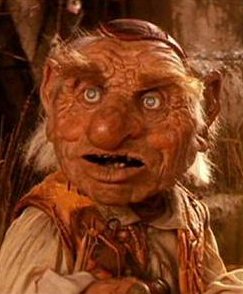Côte d’Ivoire’s national team, nicknamed Les Éléphants, currently ranks as the best in Africa. They boast Didier Drogba, one of the world’s finest and most fearsome strikers of the past decade, and Yaya Toure, one of the very best midfielders. Brazil 2014 is just the third World Cup they’ve qualified for- and it also happens to be their third consecutive showing. Luck wasn’t on their side in the drawings for their first two Cups: both landed them in severely tough groups. 2006 saw the Elephants lose out to Argentina and the Netherlands, 2010 to Brazil and Portugal. 2014 offers the up-and-coming team a better shot at the second round, with no need to vanquish a super power at the opening whistle. They’re in Group C, alongside Greece (strong defensively, but otherwise… eh), Japan (hard working, technically proficient, but not terrifying), and Colombia (very good, maybe excellent, but possibly without talismanic striker Radamel Falcao). The Elephants should be able to do this. After all, they’re drowning in talent.
Key Players
Didier Drogba: Drogba, the team’s captain, at his best is an unholy force of nature, ridiculously strong, a preternatural bully who’s silky smooth in his movement and distinguished by a pure, inextinguishable will to win. Or at least he was all of those things in his prime: he’s now 36, and a decade of playing at the highest level has exacted a toll on his knees. Drogba is a player who’s easy to loathe for his dives and on-field histrionics, but also one who demands admiration: the man will just not give up, he’s clever, and he plays his heart out. Off the pitch, he’s a philanthropist and gentleman. In the late autumn of his career, Drogba plays for Turkish powerhouse/home for aging stars Galatasaray.
Yaya Toure: Toure is another gigantic player who moves with remarkable grace. He’s a midfielder who plays from deep, and seems to be able to everything very well: tackle, dribble, shoot, and make a through pass. There isn’t a “complete midfielder” more complete than Toure. His club career has been interesting: he was almost signed by Arsenal along with his brother, Kolo, but couldn’t because of visa problems. Arsene Wenger had envisioned him as a second striker. Toure went on to play in Russia, was recruited by Barcelona where he won the sextuple before being sold to Manchester City, Guardiola having found a replacement in Sergio Busquets. Toure picked up an injury in city’s recent defeat to Liverpool, but should be fit to play in Brazil. He’s a joy to watch.
Gervinho: Gervinho’s real name isn’t Gervinho, but nobody really remembers Gervinho’s real name. He’s a very fast, unpredictable forward who can dribble like crazy but is likely to miss an open net from a yard out. Widely mocked for his catastrophic finishing at Arsenal in 2011-2013, Gervinho was sold to AS Roma this past summer, and has been reborn as a confident, game-changing player.
Serge Aurier: Aurier is an exciting young right back for the Ligue 1 team Toulouse. He’s scored 6 goals and assisted 6 more this season, which is quite a haul for a 21-year-old defender. His coach reportedly changed the team’s formation to accommodate his talent, allowing him to play as a specialized marauding wingback. He’ll be looking to make an international name for himself in the World Cup: glamorous clubs are beckoning.
Storylines
The rise of African soccer has been a thematic undercurrent in World Cups for the past couple decades. There’s argument over the allocation of spots in the tournament, with many feeling that Africa is short-changed. This feeling has grown as the continent’s talent is siphoned off to play in luxurious European professional leagues, but not particularly respected in the international game. Côte d’Ivoire, as the highest-ranking African team this go-round, will bear the weight of expectations further reaching than its own boundaries. This could be a galvanizing force, or it could make the players freeze up a little. The ease of their group has been overstated, as well: Colombia is excellent, while on their day Japan can beat anyone, and Greece can easily cause a slip-up. The Elephants will desperately want to advance, but then again so will everyone else, and none of the other teams in the group are carrying the mantle of “best of our continent.”
There’s also a longstanding belief, at least among northern Europeans, that the South American climate poses a significant challenge to teams from colder climes, and a potential advantage to those accustomed to higher heat and humidity. Of course, the African stars play for the most part in Europe, so I don’t find this meteorological logic entirely convincing. That said, I kind of hope it does work like this: the African teams aren’t handed many breaks, and so a naturally occurring one would just feel right. I’d love to see Côte d’Ivoire play far into the tournament. They’re certainly good enough.
Add The Sports Daily to your Google News Feed!
